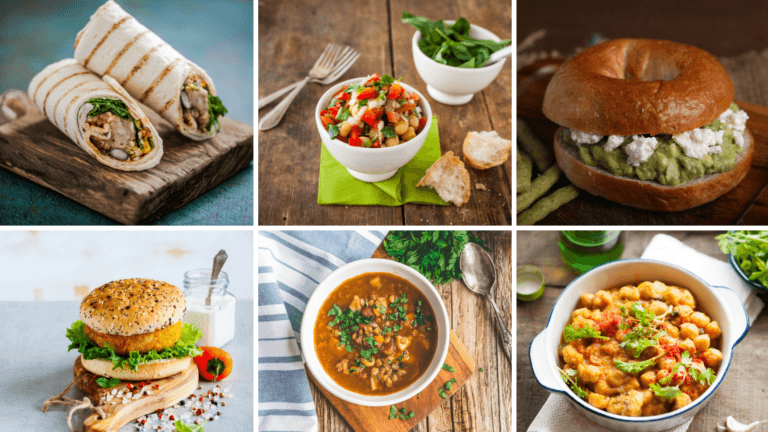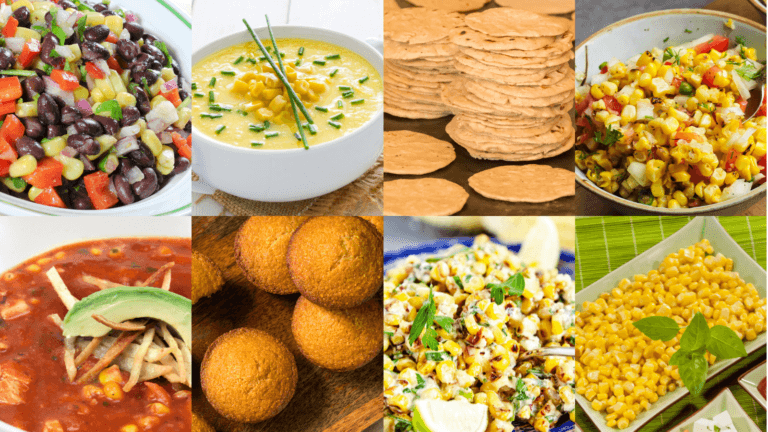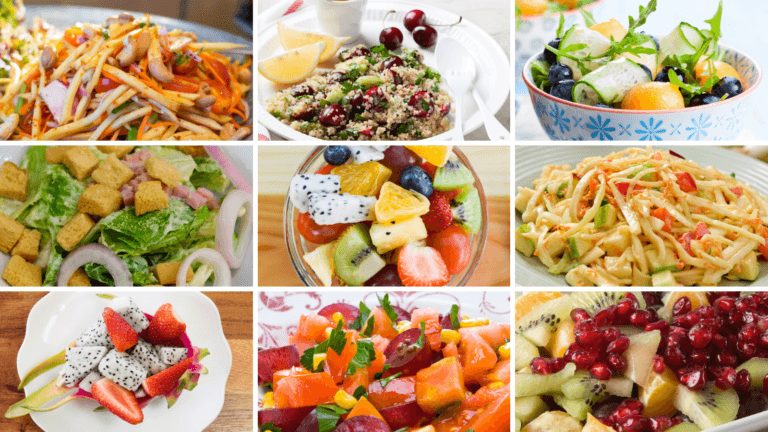Difference Between Vegan And Vegetarian
Difference Between Vegan And Vegetarian
Vegan and vegetarian diets have gained widespread popularity for their health and ethical benefits. While both avoid meat, vegans go a step further by excluding all animal-derived products, including dairy, eggs, and honey.
A vegan's diet consists entirely of items derived from animals, but a vegetarian's diet may include dairy and eggs, depending on personal desire.
The motivations behind these lifestyles often revolve around animal welfare, environmental impact, and individual health.
By being aware of the differences, people can adopt a more compassionate and sustainable way of life and make educated eating decisions.

What Is A Vegetarian Diet?
A vegetarian diet is primarily plant-based. It avoids all forms of meat, including red meat, poultry, and fish. However, it allows for other plant foods, such as vegetables, grains, legumes, nuts, and seeds.
One key distinction within vegetarianism is the inclusion of animal by-products like dairy and eggs, which vary depending on the type of vegetarian diet.
Lacto-vegetarians consume dairy products but exclude eggs, while ovo-vegetarians eat eggs but avoid dairy. Lacto-ovo vegetarians, the most common form, include both dairy and eggs in their diets.
Vegetarianism is often chosen for various reasons, including health benefits, environmental concerns, and ethical beliefs regarding animal welfare.
By integrating a variety of plant-based foods, a well-balanced vegetarian diet can include all the nutrients—including proteins, vitamins, and minerals—necessary for a healthy life.
Numerous studies demonstrate how it may reduce the risk of long-term conditions like heart disease, high blood pressure, and some types of cancer.
However, vegetarians must be mindful of obtaining essential nutrients like vitamin B12, iron, and omega-3 fatty acids, which are more easily found in animal products.
Supplements or foods enriched with nutrients may be required to guarantee nutritional balance. A vegetarian diet can be fulfilling and nutritionally adequate, offering a lifestyle that aligns with health goals and ethical values.

What Is A Vegan Diet?
A vegan diet is entirely plant-based, excluding all animal-derived products, including meat, dairy, eggs, and honey. Vegans also avoid using products like gelatin, which is made from animal collagen, and other ingredients derived from animals.
The diet focuses on consuming whole plant foods such as fruits, vegetables, grains, legumes, nuts, and seeds and plant-based alternatives to traditional animal products, like almond milk, tofu, and vegan cheese.
Many vegans are motivated by ethical concerns regarding animal rights, environmental impact, and health benefits. They believe in reducing animal harm by avoiding their flesh and any products from them.
The vegan diet is praised for having a smaller carbon footprint and using fewer natural resources than animal husbandry. Nutritionally, a well-planned vegan diet can provide all essential nutrients.
However, vegans must ensure they get adequate protein sources, vitamin B12, iron, calcium, and omega-3 fatty acids. These nutrients can be obtained through plant-based foods, fortified products, or supplements.
Studies have shown that the risk of chronic illnesses like diabetes, heart disease, and some types of cancer, according to studies. It stands for a caring, health-aware, and environmentally friendly style of life to many.
Key Differences Between Vegans And Vegetarians
Vegan and vegetarian diets differ mainly in the exclusion of animal products. Vegans avoid all animal-derived items, while vegetarians may include dairy, eggs, or other animal by-products. Here are the key differences between them:
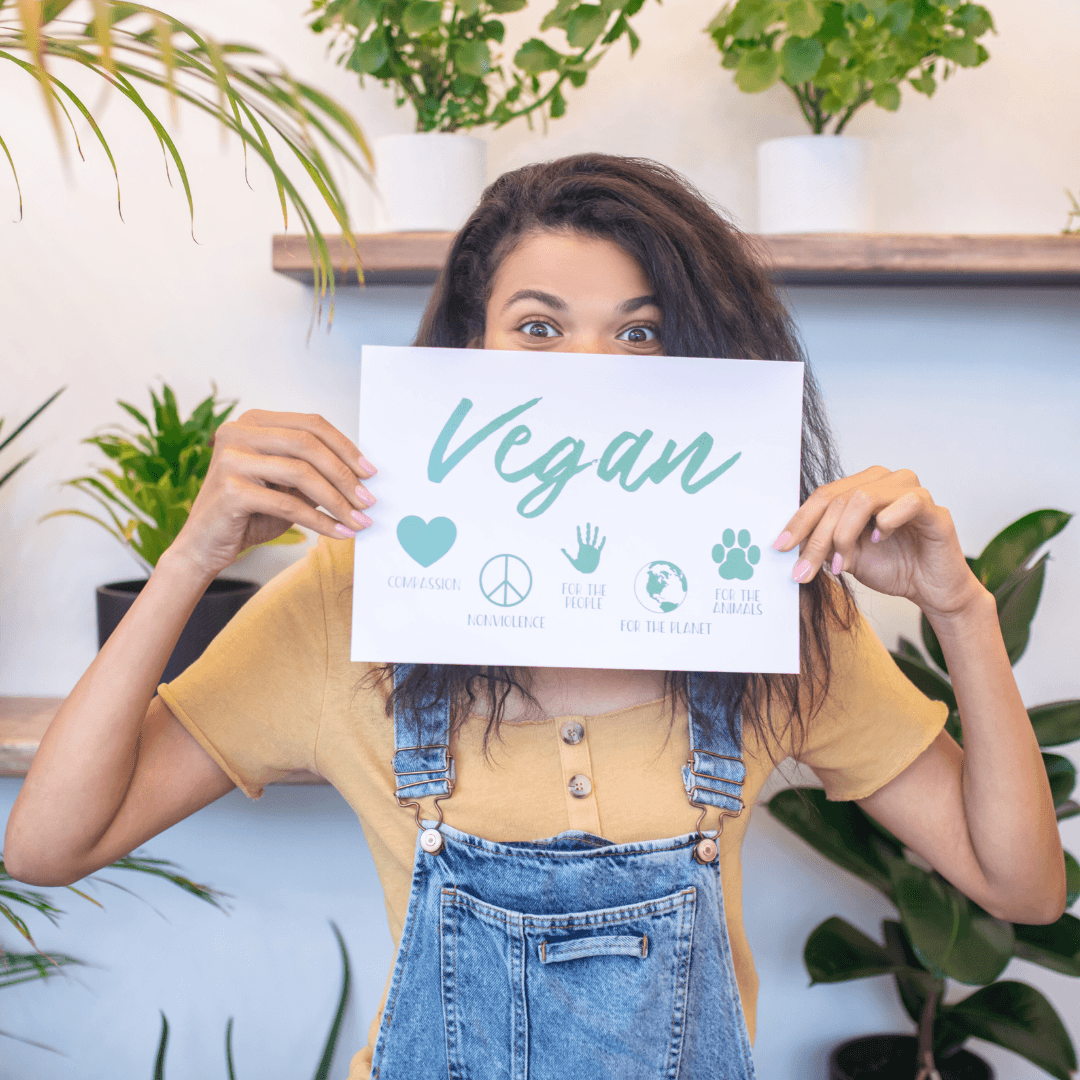
1. Dietary Choices
Vegetarians' Dietary Choices
Vegetarians avoid all forms of meat, including poultry, fish, and red meat. However, they may consume dairy products and eggs, depending on the type of vegetarian diet.
Lacto-vegetarians include dairy but not eggs, while ovo-vegetarians avoid dairy. The most common form, lacto-ovo vegetarians, consume both.
Vegans' Dietary Choices
Vegans eliminate all animal-derived products from their diet. Examples include meat, dairy, eggs, honey, and some processed foods with additives like casein or gelatin originating from animals.
Veganism is often driven by ethical concerns for animal welfare, environmental impact, and personal health, and it requires careful nutrient planning.
2. Lifestyle Choices
Vegetarians' Lifestyle Choices
Most vegetarians focus primarily on their diet, avoiding meat but not necessarily other animal-derived materials. Many may still use products like leather, wool, or cosmetics tested on animals.
Their choice tends to center on food consumption, with fewer restrictions on other lifestyle aspects involving animal products.
Vegans' Lifestyle Choices
Vegans extend their ethical beliefs beyond diet, avoiding any product or practice involving animal exploitation. This includes not using leather, wool, or cosmetics tested on animals and avoiding entertainment like zoos or circuses.
Veganism is often a comprehensive lifestyle that prioritizes animal rights and environmental sustainability across all areas of life.

3. Health And Nutritional Considerations
Vegetarians' Health Considerations
Vegetarians need to monitor their protein, iron, and vitamin B12 intake, nutrients commonly found in meat. However, they can often meet these needs through eggs, dairy, and plant-based sources. Careful planning ensures a balanced diet that supports overall health while avoiding animal flesh.
Vegans' Health Considerations
Vegans, who avoid all animal products, may find it challenging to get adequate B12, calcium, and omega-3 fatty acids. They often rely on fortified foods like plant-based milk or nutritional supplements to maintain a balanced diet. Proper nutrient planning is essential to prevent deficiencies and support long-term health.
4. Environmental Impact
Vegetarian Diet's Environmental Impact
Vegetarian diets typically have a lower environmental impact than meat-heavy diets. By avoiding meat, vegetarians contribute less to greenhouse gas emissions, deforestation, and water usage linked to animal farming.
However, dairy and egg production still require resources, making the overall footprint lighter but less than a vegan diet.
Vegan Diet's Environmental Impact
Vegan diets generally have the smallest environmental footprint, as they eliminate all forms of animal agriculture. By avoiding meat, dairy, and eggs, vegans reduce their contribution to greenhouse gas emissions, land use, and water consumption, making this diet the most sustainable choice from an environmental perspective.
5. Motivations For Adopting The Diet
Vegetarian Motivations For Adopting The Diet
Vegetarians may choose their diet for various reasons, including health benefits, animal love, or environmental concerns.
Some individuals simply prefer the taste of plant-based foods or wish to reduce their meat consumption while still consuming some animal products. This adaptability permits a wide variety of nutritional choices.
Vegan Motivations For Adopting The Diet
The difference between vegan and vegetarian motivations is that vegans primarily focus on ethical convictions regarding animal rights, while vegetarians may only extend their beliefs to include some animal products.
While health and environmental concerns are common, the moral component typically plays a more significant role in their lifestyle choice. This commitment influences all aspects of their consumption and daily practices.

6. Processed Foods
Vegetarians And Processed Foods
Vegetarians may consume processed foods containing animal-derived additives, such as rennet in some cheeses or gelatin found in candies, marshmallows, and certain desserts.
While they avoid meat, they might only sometimes be aware of these ingredients. Consequently, some processed foods can still be part of their diet without compromising their vegetarian principles.
Vegans And Processed Foods
Vegans strictly avoid all food products containing animal by-products. This includes additives like whey and casein and certain insect-derived food colourings, such as cochineal or carmine.
Additionally, vegans must be vigilant about hidden animal derivatives in unexpected products, like wines, beers, and fortified juices, using animal-based clarifying agents.
7. Animal By-Products In Non-Food Items
Vegetarians And Non-Food Items Derived From Animals
Vegetarians may only partially avoid non-food items derived from animals. For example, they might use leather, wool, silk, or products tested on animals.
Their choices often focus primarily on dietary preferences, leading to a more lenient approach regarding animal-derived materials and products in other aspects of their lives.
Vegans And Non-Food Items Derived From Animals
Vegans consistently avoid all animal by-products in non-food items as part of their commitment to animal rights. This includes refusing clothing made from leather, wool, or silk, cosmetics, and household products containing animal-derived ingredients or tested on animals. Their ethical stance influences every aspect of their consumption.
8. Social And Cultural Considerations
Vegetarians' Social And Cultural Considerations
Vegetarians' wider variety of permissible foods makes them a better fit for social gatherings and cultural customs than vegans, which is a difference between their diets.
Many cultures have long-standing vegetarian-friendly meals, and vegetarians can often adapt their diet to different cuisines with minimal restrictions.
Vegans‘ Social And Cultural Considerations
Vegans often face more challenges when eating out or attending social events, especially in non-vegan-friendly environments.
They must be more vigilant about hidden animal ingredients in sauces, dressings, and baked goods. This can sometimes require extra planning or communication when dining at non-vegan restaurants or attending gatherings where animal products are commonly used.

9. Cooking And Meal Preparation
Cooking And Meal Preparation As A Vegetarian
Vegetarians can prepare versatile meals that include eggs, dairy, and other animal products. This flexibility allows them to create dishes like scrambled eggs, cheese-based recipes, or yogurt-based desserts, enriching their cooking options while adhering to their dietary preferences.
Cooking And Meal Preparation As A Vegan
Vegans must be more creative with plant-based substitutes for eggs, cheese, and other common ingredients. Fortunately, many alternatives, such as almond milk, soy cheese, flax eggs, and plant-based meats, are now available, but these sometimes require more planning or specialized shopping.
10. Impact On Digestion And Health
Vegetarians
Vegetarians may find their diet easier on the digestive system than a meat-heavy diet. However, they might still consume dairy and eggs, which can cause issues like lactose intolerance or egg sensitivity.
Vegetarians tend to have an easier time balancing nutrients like protein and calcium since they can access plant—and animal-based sources.
Vegans
Vegans avoid dairy, which may improve digestion, but they have trouble getting several nutrients, which are usually easier to get on a vegetarian diet.
This highlights the differences between vegan and vegetarian diets. Vegans often need supplements or fortified foods to obtain specific minerals, like iron, calcium, vitamin D, vitamin B12, and omega-3 fatty acids, which are more challenging to obtain on a vegan diet.
11. Public Perception And Misconceptions
Vegetarians
Vegetarians are often seen as having a less radical approach to diet, which may make it easier to explain their lifestyle choices to others.
Since vegetarianism has been widely accepted and practiced for centuries across various cultures and religions, there is typically less stigma or misunderstanding around their diet.
Vegans
Vegans may face more misconceptions or judgment, as their lifestyle is often seen as more restrictive or extreme. Some people may mistakenly believe vegan diets are nutritionally deficient or overly complicated.
Additionally, because veganism can sometimes be associated with ethical and environmental activism, it may be met with strong opinions from others, both positive and negative.
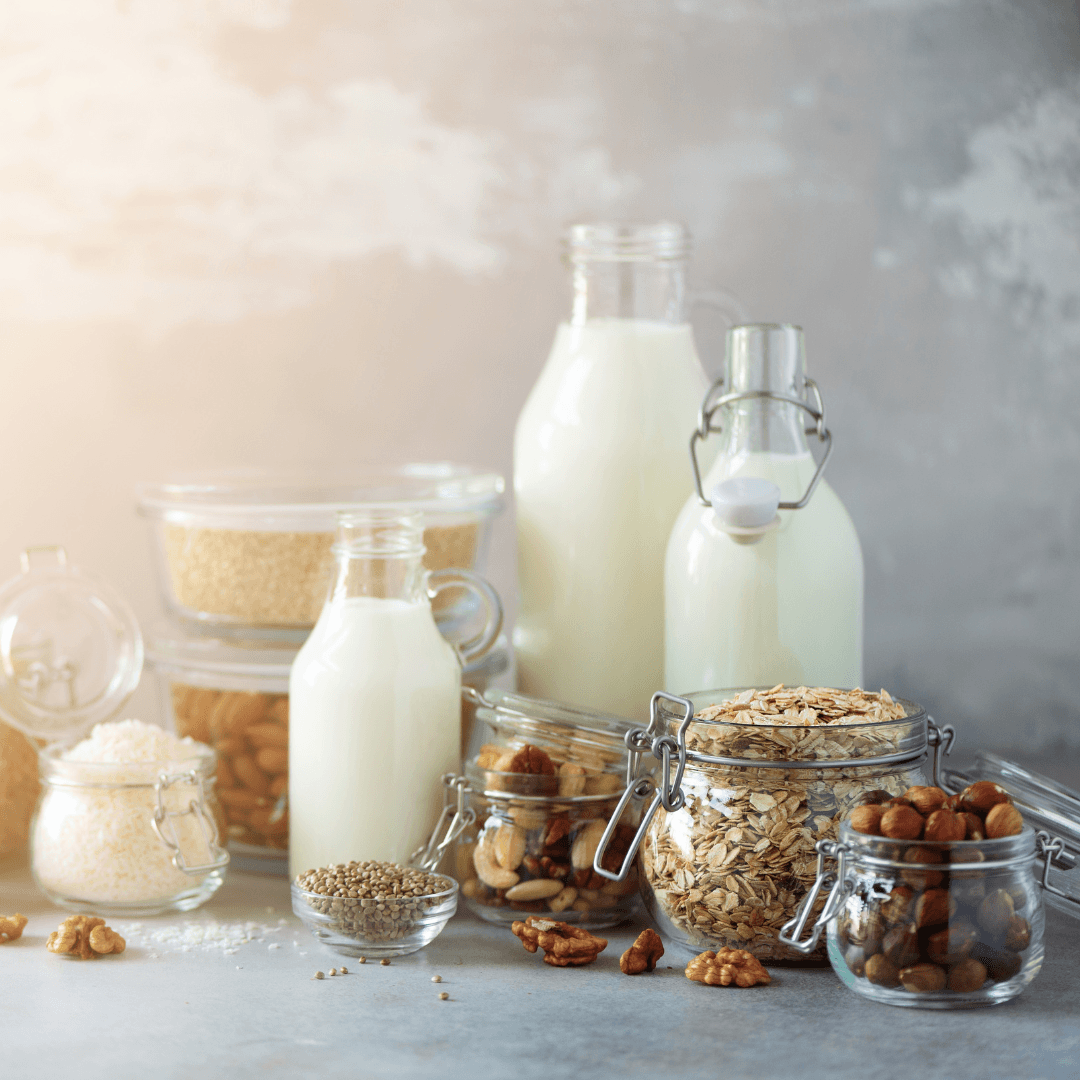
12. Variety And Substitution Of Products
Vegetarians
Vegetarians have many foods available, including many traditional and store-bought options. Cheese, yogurt, butter, and eggs are readily accessible, and these animal-derived products can be found in many forms—both in gourmet cooking and fast food.
Vegans
Vegans rely heavily on plant-based alternatives, which have become more available but require substitution. Over the years, vegan products have become more accessible, including vegan cheese, plant-based yogurt, and dairy-free butter.
However, it may still be challenging in areas where vegan options aren’t as widespread. Vegans also often make homemade alternatives, like cashew cheese or aquafaba, to replace eggs.
13. Cultural And Religious Practices
Vegetarians
Cultural or religious beliefs can influence the differences between vegetarian and vegan diets. Many vegetarians adhere to their diet for ethical reasons while still consuming dairy and eggs, unlike vegans who avoid all animal products.
Hinduism, Buddhism, Jainism, and certain sects of Christianity promote vegetarianism as a way of preventing violence or purifying oneself. These practices typically allow the consumption of dairy and sometimes eggs.
Vegans
While vegans are not typically associated with any specific cultural or religious mandates, they may choose the lifestyle for ethical reasons, aligning themselves with principles of reducing harm and exploitation of animals.
This distinction makes veganism more of a personal choice driven by animal rights, ethics, and environmental concerns rather than tradition.

14. Ethical Considerations Of Animal Welfare
Vegetarians
Vegetarians often advocate for less harm to animals by avoiding meat but may not object to the use of animal by-products, such as milk or eggs, if these are sourced from farms that follow humane practices. Some vegetarians focus on reducing direct killing but do not take issue with the consumption of by-products.
Vegans
The difference between vegan and vegetarian philosophies is that vegans adhere to a stricter stance on animal welfare, rejecting all forms of animal exploitation, while vegetarians may allow certain animal products like dairy and eggs in their diets.
They believe that the use of animals in any form—whether for food, clothing, or entertainment—is exploitative. They argue that even industries like dairy and egg production involve significant harm, such as poor conditions for animals and therefore abstain from any animal-derived products entirely.
Which Is Better: Vegan Or Vegetarian?
Which is Better? Nutritionally, neither diet is inherently “better” than the other; both can be healthy and provide all essential nutrients when properly planned.
Vegans may need to be more vigilant about supplements, while vegetarians may have a slightly easier time balancing nutrient intake. Ultimately, the best choice comes from personal health goals, ethical concerns, and lifestyle preferences.
A vegan diet may appeal more if you focus on ethical and environmental considerations. A vegetarian diet might be a better fit for flexibility and convenience.
FAQ
1. Can Vegetarians Eat Eggs And Dairy?
Answer: Yes, most vegetarians consume eggs and dairy products, depending on their dietary preferences.
2. What Motivates People To Choose A Vegan Or Vegetarian Lifestyle?
Answer: Motivations can include health benefits, ethical concerns about animal welfare, and environmental impact, although vegans typically emphasize ethical considerations more strongly.
3. Is A Vegan Diet Healthier Than A Vegetarian Diet?
Answer: Both diets can be healthy, but a vegan diet requires careful planning to ensure adequate intake of certain nutrients like vitamin B12 and omega-3 fatty acids, which are easier to obtain in a vegetarian diet.
4. Are There Any Social Challenges For Vegans And Vegetarians?
Answer: Yes, both may encounter challenges at social events or restaurants, but vegetarians often find it easier to navigate due to their broader range of acceptable foods.
5. Do Vegetarians Avoid All Animal-Derived Products?
Answer: No, vegetarians may consume products like leather or cosmetics tested on animals, whereas vegans avoid all forms of animal exploitation in their lifestyle.
6. Do Vegans Eat Honey?
Answer: No, vegans avoid honey because bees produce it. Since veganism opposes using any animal-derived products, honey is excluded from the diet.
7. Can Vegetarians Eat Fish?
Answer: No, traditional vegetarians do not eat fish. However, some people follow a pescatarian diet, which includes fish and seafood but no other types of meat.
8. Can I Get Enough Protein On A Vegan Or Vegetarian Diet?
Answer: Yes! Both diets offer plenty of plant-based protein sources such as beans, lentils, tofu, tempeh, quinoa, nuts, and seeds. Vegetarians also get protein from eggs and dairy.
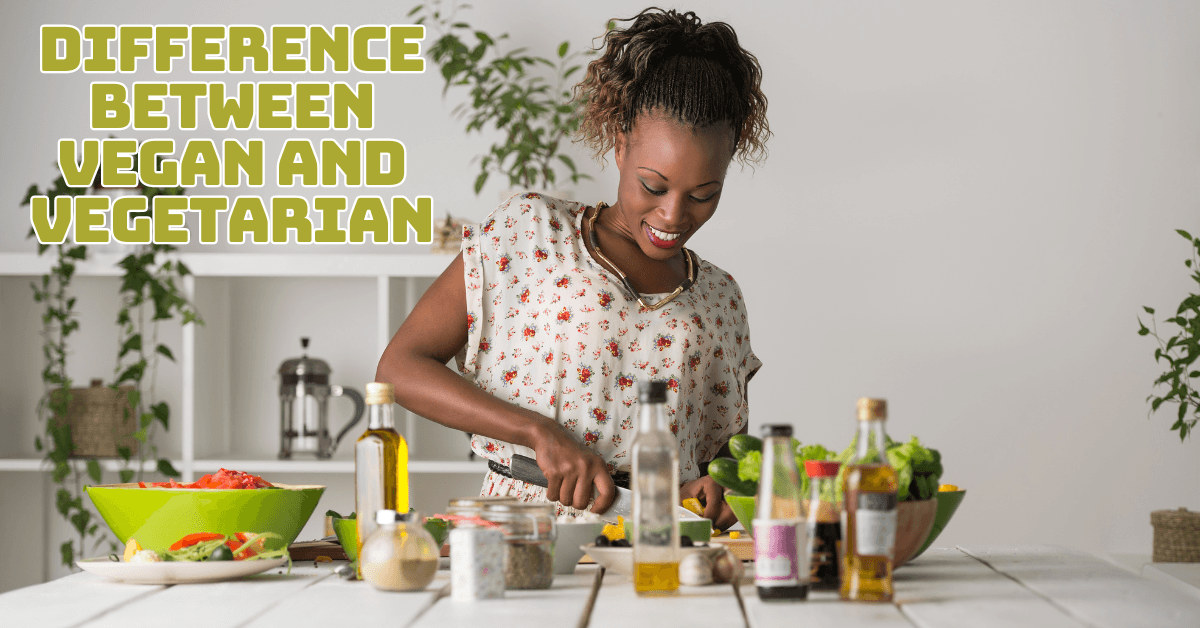
Conclusion
In conclusion, the difference between vegan and vegetarian diets lies in the level of restriction. Vegetarians allow some animal products, while vegans eliminate all animal-derived items due to their ethical convictions.
Vegetarians exclude meat but may consume dairy and eggs, offering greater dietary flexibility. In contrast, vegans eliminate all animal products, driven by strong ethical convictions regarding animal rights.
Understanding these differences can ultimately guide people toward a lifestyle that resonates with their beliefs and health goals.
I trust you enjoyed this article about the Difference Between Vegan And Vegetarian. Please stay tuned for more blog posts soon. Take care!
JeannetteZ
>>>Please click here to read my Vegan Travel Guides To World Destinations<<<
>>>Want To Learn How To Create Delicious, Cruelty-Free, Healthy AND 100% Vegan Meals? Try These Awesome Vegan Cooking Courses With A Free 7-DAY MEMBERSHIP<<<
Your Opinion Is Important To Me
Do you have thoughts, ideas, or questions? I would love to hear from you. Please leave me your questions, experiences, and remarks about the Difference Between Vegan And Vegetarian in the comments section below. You can also email me at Jeannette@LivingTheVeganLifestyle.org.
Disclosure
This post may contain affiliate links. I earn from qualifying purchases as an Amazon Associate and other affiliate programs. Please read my full disclosure.
Here are links to some of my favourite articles:
Top Vegetarian Diet Supplements For Optimal Nutrition
Top Vegan Probiotic Food For A Healthy Gut
Best Vegan Restaurants In Pensacola

